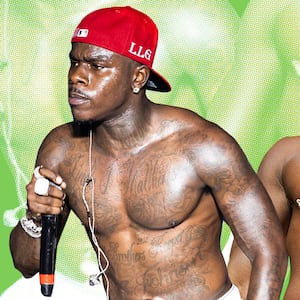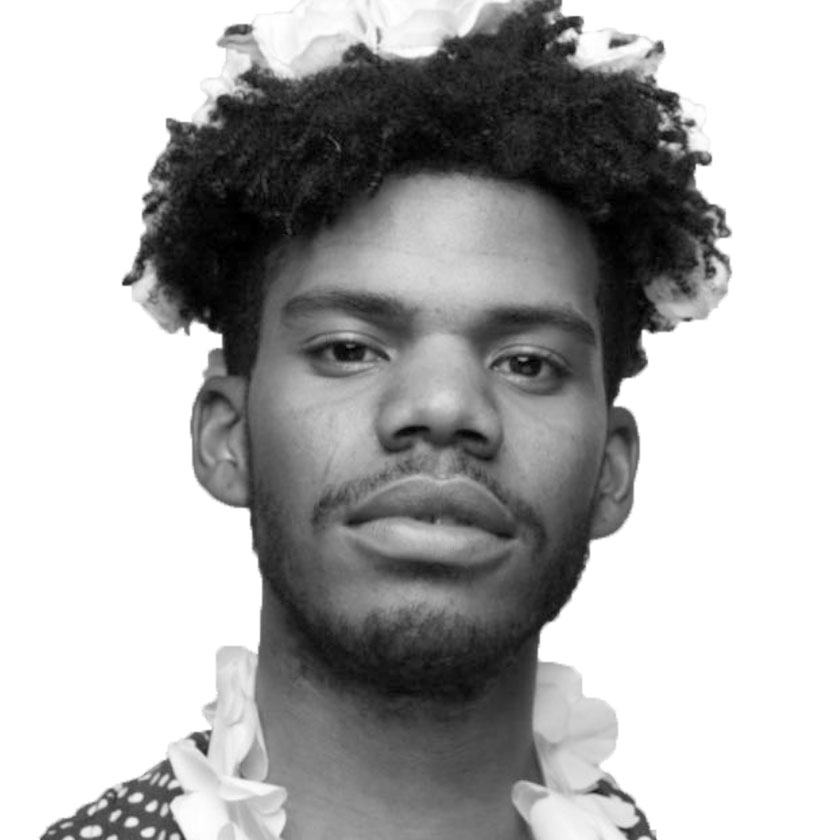And here we have the latest status update on the ubiquitous Chicago producer, rapper, and self-anointed God, seemingly humbled by life and divorce proceedings from his superstar ex-wife, Kim Kardashian, whilst carrying with him a seething loneliness ever since the death of his mother, whose absence is channeled through the edifice of his South Side childhood home while standing shoulder-to-shoulder with men who’ve shown nothing but disdain for the women in their lives. Kanye West, after spending what felt like 40 days and 40 nights exiled underneath the Mercedes-Benz Stadium, throwing three arena-packed multi-million dollar listening sessions, and boasting a collection of features that rivals DJ Khaled, is a man whose contradictions have folded into themselves. He is a bird trapped in a cage of his own making. He is not suffering from a hint of cancel culturitis. He is, quite simply, a middle-aged man who once touched the hem of musical brilliance with nothing left to give.
But he does have plenty to take.
From the very start, the 44-year-old rapper thieved headlines with the most grandiose gestures an artist with a muted social media presence could pull. He revealed he’d been living under the Atlanta Falcons’ stadium to finish the album; he staged listening parties with Kim Kardashian in tow wearing her wedding dress; he bucked and screamed, “Listen to the album or go home” at fellow-Chicagoan Chance the Rapper in a leaked video early in the album’s production; alleged that Universal Music Group released Donda without his permission; was subject to curiously-timed “reports” that he and Kim were “rebuilding” that were immediately walked back a day later; and last week stood next to accused sexual assaulter Marilyn Manson, and unapologetic homophobe and assaulter, DaBaby. And this was all before the masses even got a sniff of what the album would sound like.
Right off the bat, on album opener “Donda Chant,” West—known for his rather loose definition of borrowing—used a sample of gospel singer Bri Babineaux’s entrancing chant without her approval. Babineaux is one of two Black women’s voices on the entire 27-song, 108-minute Donda—the other being the late Donda West herself, who features on “Praise God” and “Donda,” saying on the latter: “I am my son’s mother, the man I describe in the introduction as being so decidedly different… I got a chance to share not only what he has meant to me, but what he has meant to a generation.”
For a new generation, he will serve as an avatar of grief—at best—and an aggy, existential-pity celebrant at worst. From “Jail,” where he says that, “we’re all liars,” to the self-aggrandizing “Ok Ok,” where he spits, “You the type to cut the grass and snake your bestest friend, I’m the type to close the deal and cut my n*ggas in.” Those other rappers he cut in, by the way, do a much better job of propping up the falling star. Fivio Foreign raps perhaps his best verse yet on “Off the Grid,” unlocking a redemptive arc and narrative panache that we’d never heard before: “I’m feeling marvelous, who let the monster loose? They call me a product of my environment, I tell em, ‘Nah, I’m what God produced.’” To his credit, West is still a master of laying the foundation for other artists and producers (he worked with longtime collaborator and legendary producer Mike Dean as well as a whole host of audio titans like David x Eli, 88 Keys, Buju Banton, Cashmere Brown, and Wheezy) to shine. Fivio fits comfortably in this drill-ish pocket, spinning yarns of spirit and urgency that would make any Woo fan’s eyes widen.
He does it again on tracks like “Junya” where Lil Durk, who has no shortage of homies and loved ones to grieve, takes the moment to pour one out for his brother, Dontay, who was recently murdered outside a Chicago nightclub. The guest verses on Donda are probably its best assets. And while the Sunday Service Choir has been relegated to some bland iteration of protestant pining, records like “Jonah” and “Believe What I’m Saying” are simply undeniable: Kanye the Composer, when he’s really feeling it, can chop a soul beat better than most.
But therein lies one huge issue with Donda: it’s just much too long and packed with artists for there to be no so few women present, whether rapping or singing. For every Vory feature—and to be fair, the Houston-born Grammy-winning artist does the lord’s work on a number of tracks—there could’ve quite easily been a female vocalist of equal talent carrying those records home. The lack of women feels intentional here, as if to say that Donda and Kim are the only true female figures in his life, and both of them are becoming more and more distant from him. Instead, he’s taken it upon himself to recruit an army of sexist men to perform songs on an album named for his mother, to further insult our sensibilities.
It is so magnificently disrespectful that West has a song, “New Again,” with perpetual abuser Chris Brown wherein the embattled singer refrains, “I repent for everything I’ma do again.” Even more, on “Jail pt 2,” in addition to DaBaby arguing that his recent dust-ups in the public sphere regarding his rampant misogyny and queerphobia were making it difficult to feed his daughter, the track also perversely showcases Marilyn Manson screaming “guess who’s going to jail” in the midst of a criminal investigation where multiple women have come forward to accuse him of domestic violence and sexual assault.
West brought even more attention onto his album’s ugly men by claiming DaBaby’s manager, Arnold Taylor, blocked the DaBaby and Marilyn Manson feature—which Taylor quickly called misleading. Much to his chagrin, Soulja Boy, who has his own history of allegedly abusing women, is pretty pissed to be left off the final version of the track “Remote Control.” He’s taken to Twitter to not only post screenshots of their previous conversations where West is thirsting for a collab, but also to call out his elder for being fake:
Perhaps ‘Ye reached his predator quota. Or perhaps this is just another publicity stunt to garner even more chatter for the album. Regardless, what we’re left with is an indignant record of Kanye and his co-conspirators not taking ownership of their own actions, glossing over the real harm they cause in some trauma-bonding exercise.
There is no doubt that Kanye is in pain; there is no doubt that the artist is suffering. But there is a malignancy present in his cult of personality and his lyrical content that can dissuade any considerate listener from giving a damn. We are all, in the midst of a pandemic, in our own kind of exile, dealing with grief in profound measure. Instead of being the pastor whose sermons help us take accountability for the ways we’ve contributed to our own agony, West has harnessed that collective grief for his own capital gain and “born again” ennoblement, in order to convince us to forgive and forget. But he’s not a new being; he has not reached the soul-purity he professes. Instead, Donda is an overinflated mess that leaves listeners as physically and psychically exhausted as Kanye West claims to be.


